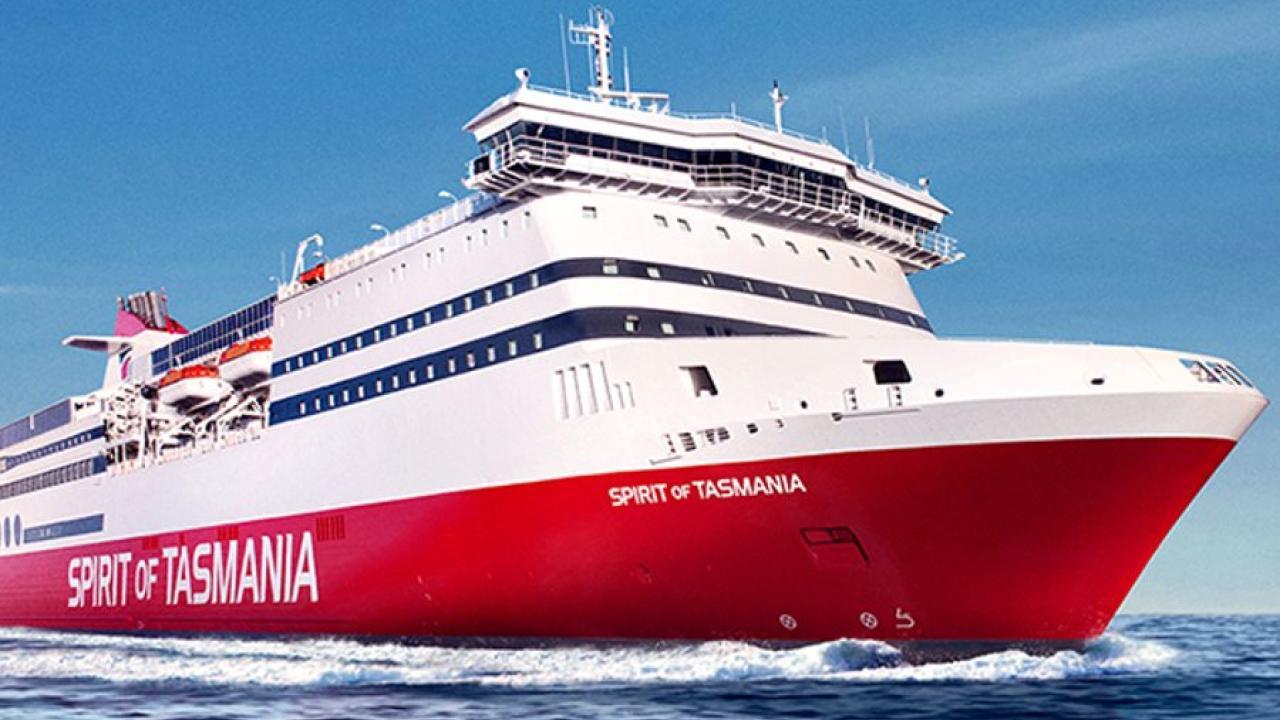Ferry Fiasco the beginning of the end

Some political scandals hit harder than others. This particular one has hit the Government like a gut-punch, followed up by a Mike Tyson-style right hook/right uppercut combination.
Piled on top of the accumulated Government failures and scandals over the past decade, it has left the Government dazed and staggering.
It has rocked community and business confidence in the Government in a way no other event has in living memory.
Politically, its closest parallel was the 2011 Giddings Labor/Green Government budget, which cut nurses and police, and most damagingly, tried to close 20 schools. A budget from which that Government never recovered.
It is not the end of the Liberal Government. But it is most certainly, the beginning of the end.
“It” goes by many names. The Ships Saga. The TT-Line Debacle. The Ferry Fiasco.
At least it hasn’t been called “Spiritsgate”.
Whatever you want to call it, the Ferry Fiasco (let’s call it that) has been a disaster for the Rockliff Government.
A rolled gold, tier one disaster – both practically, and politically.
How it can be that no one in either the TT-Line, TasPorts, the Treasury, the Department of State Growth, or then Minister Ferguson’s office thought to check that we would have a place to moor the new Spirits of Tasmania in Devonport truly boggles the mind.
In response, on the weekend the Premier announced that his Government would seek to merge TasPorts, the TT-Line and TasRail into one company to “enhance the efficiency and sustainability of Tasmania’s transport and logistics services".
Whether the creation of a new behemoth will work, time will tell. Personally, I’m not convinced. The Premier’s review also flags privatisation of some of the GBEs, which in the case of TT-Line at least may be a better option.
At the same time, the Premier also announced a suite of changes to the way that our state’s 14 (yes, 14!) Government businesses operate.
Normally I don’t like the use of the term “reform” in political debate, it is usually a euphemism for either increasing taxes, or for making politically unpopular changes.
In the case of Tasmania’s Government Business Enterprises and State-Owned Companies, the word is entirely appropriate – and long-overdue.
Among the proposed changes, requiring that the majority of directors of these companies be Tasmanian (how is that not already the case?), and term limits on both Board Members and Chairs.
There’s also proposed legislative change requiring that each GBE or SOC have at least two different shareholder Ministers, in an effort to try and avoid another Ferry Fiasco-like event, where one Minister (Treasurer and Transport Minister Michael Ferguson) had sole oversight.
A good start, to be sure. But where’s the accountability?
If it was private enterprise the entire Boards of TT-Line and TasPorts would have been sacked, and the senior management as well.
Instead, in this bizarre world of Government Business Enterprises, most of the blame has been sheeted home to the shareholders (the Tasmanian Government), while those who oversaw the Fiasco have gotten off virtually scot-free.
Michael Ferguson has paid the highest price, ultimately losing his Cabinet position over it – although, if he had shown just an ounce more contrition following his resignation as Infrastructure Minister I have no doubt he would still be Deputy Premier and Treasurer.
The Chair of the TT-Line was rightly (eventually) sacked. The CEO announced he won’t be seeking to renew his contract when it expires shortly. The Chair of TasPorts has been allowed to “retire”, but the CEO is still in place.
The lack of accountability stinks.
Unfortunately, this is not the first time in recent history that a government entity has gotten away with blue murder.
Readers may recall earlier this year the brief controversy about the Tasmanian Community Fund, exposed by the Audit Office for having inappropriately gifted $558,000 of taxpayer funds to the “yes” case in the Referendum. (Disclosure, I voted “yes”.)
At the time, then Minister Roger Jaensch said that he had requested “urgent advice” about how to respond to the matter, and that the Government intended to legislate by the end of this year.
Well, there are now just two sitting weeks left in the year and no legislation has been sighted. It gives a new definition to “urgent”.
And guess how many TCF board members were sacked for this disgrace? [Spoiler alert: none].
Along on the weekend, the Department of Premier and Cabinet quietly advertised for three new Board members, including a Chair. But at least two of those positions (The Chair, and the North-West based Director) expire in December this year anyway.
So, hardly any sort of punishment for their actions.
The problem is, if the people in charge of the various GBEs and other quangos aren’t made to pay the price for their errors, it breeds the exact culture of contempt and arrogance that led to the Ferry Fiasco.
The Government’s many types of quangos – Government Business Enterprises, State Owned Companies and Statutory Authorities deliver essential services to Tasmanians, and in many cases dole out fistfuls of our cash.
The Premier’s limited governance reforms are a good start, but unless those on these organisations are truly held to account, we are doomed to history repeating.
- Brad Stansfield is a Partner at Font PR and at Font Publishing, the owners of this newspaper.




Add new comment